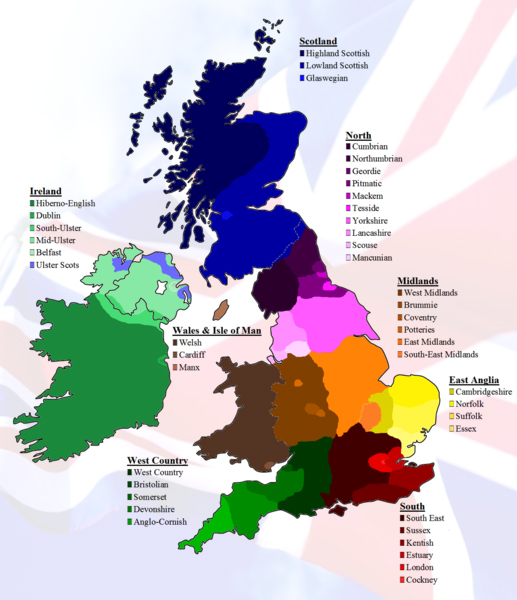
Apply to a foreign university with confidence
- Properly fulfilled documents
- Perfect motivation letter
- Support from a personal mentor
- Offers from several universities
English courses in the UK. List of language schools, programs, fees and admission process.
Free consultation









Language courses in the UK are the most obvious choice for learning English. There are more language schools here than in other English-speaking countries, and there are programs for everyone: company employees, students, tourists. Course durations vary from 1 week to a year.

| School | Program | Weeks | Tuition fees/week | City | Living in a residence/week | Homestay/week |
|---|---|---|---|---|---|---|
| LSI | Afternoon 10 | 1-11 | 199 USD | London, Brighton, Cambridge | 271-497 USD | 159-271 USD |
| General 20 | 1-50 | 371 USD | ||||
| Intensive 24 | 1-50 | 430 USD | ||||
| Intensive 30 | 1-50 | 490 USD | ||||
| Pathway | 12-48 | 424 USD | ||||
| Academic English | 4-48 | 424 USD | ||||
| English for Business | 1-50 | 490 USD | ||||
| TOEFL 30 / TOEIC 30 / IELTS 30 | 1-50 | 490 USD | ||||
| Cambridge 30 | 4-12 | 450 USD | ||||
| One to One Lesson | 1-50 | 77 USD/Lesson | ||||
| Plus Courses | 1-50 | 384 USD | ||||
| 9 Day Compact | 9 days | 6,297 USD/9 days | ||||
| English for Teaching | 12 | 490 USD | London, Brighton, | |||
| Club 40+ | 1-4 | 715 USD | London, Cambridge | |||
| Medical English | 1-8 | 430 USD | London | |||
| English for Law | 1-8 | 430 USD | ||||
| Junior Courses | 1 -4 | 993 USD | London, Brighton, Cambridge | Included in the course cost | Included in the course cost | |
| EC | General English | 1-23 | 450 USD | London, Brighton, Bristol, Manchester, Cambridge | 344-768 USD | 192-424 USD |
| Intensive English | 1-23 | 556 USD | London, Brighton, Bristol, Manchester | |||
| Academic Semester / Year | 24-99 | 364 USD | ||||
| Intensive Academic Semester / Year | 24-99 | 437 USD | ||||
| One-to-One | 1-50 | 119 USD/lesson | ||||
| IELTS | 1-23 | 450 USD | ||||
| English for Work | 1-12 | 556 USD | London , Brighton, Bristol | |||
| Cambridge | 8-10 | 556 USD | London, Brighton | |||
| English in the City | 1-4 | 556 USD | ||||
| Business English | 1-23 | 450 USD | London | |||
| UniBridge Standard | 4-99 | 437 USD | Cambridge | |||
| UniBridge Intensive | 4-99 | 549 USD | ||||
| Fast Track Standard | 1-99 | 596 USD | ||||
| Fast Track Intensive | 1-99 | 728 USD |
When applying for a language course, many hours are spent clarifying the nuances behind courses and finding accommodation options in the UK. Our experts will help you save valuable time.
At UniPage, we cooperate only with accredited language centers, which, besides offering quality education and accommodation, provide discounts to our clients. Our experts will select a program by type and intensity, help you apply for and book a course, and explain all of the intricacies behind the course contract.
| Types of program | Intensity | Group | Min. language requirements | Avg. cost per week |
|---|---|---|---|---|
| One to One | 5-50 | 1 | Starter (A0) | 384-3,840 USD |
| Afternoon 10 | 10 | 10-15 | Elementary (A1) | 305 USD |
| General English | 20 | 10-14 | Starter (A0) | 450 USD |
| Semi-Intensive Courses | 24 | 10-14 | Starter (A0) | 530 USD |
| Intensive English | 30 | 10-14 | Starter (A0) | 556 USD |
| Academic Semester / Year | 20-30 | 10-14 | Starter (A0) | 437 USD |
| English Plus | 2+ | 1 | Starter (A0) | 119 USD/lesson |
| Exam Preparation IELTS / TOEFL / TOEIC / Cambridge | 20-30 | 10-14 | Intermediate (B1) | 477 USD |
| Academic English | 25 | 10-15 | Intermediate (B1) | 424 USD |
| English for Work | 30 | 10- 14 | Intermediate (B1) | 490 USD |
| English for Teaching | 25-30 | 10-15 | Intermediate (B1) | 755 USD |
| English in the City | 30 | 10-14 | Starter (A0) | 556 USD |
| Business English | 20-30 | 10-12 | Upper Intermediate (B2) | 450 USD |
| General English with Work Experience | 20 | 10-14 | Intermediate (B1) | 410 USD |
| UniBridge Standard | 20 | 6-8 | Elementary (A1) | 437 USD |
| UniBridge Intensive | 30 | 10-15 | Elementary (A1) | 549 USD |
| Fast Track Standard | 16 | 10-15 | Starter (A0) | 596 USD |
| Fast Track Intensive | 26 | 10-15 | Starter (A0) | 728 USD |
| Club 40+ | 20 | 10-15 | Elementary (A1) | 715 USD |
| Junior programs (6-17 years old) | 20 | 10-15 | Elementary (A1) | 960 USD |
| Live and Study in Your Teacher's Home | 10-30 | 1 | Starter (A0) | 1,456 USD |
| University courses | 6-48 | 10-15 | Intermediate (B1) | 596 USD |
| Pathway | 20-30 | 10-15 | Intermediate (B1) | 18,537 USD/year |
Language schools in the UK are distinguished by a variety of English programs. The most common are standard courses:
In addition to the standard courses, there are those with additional options:
This program helps students get into a university. If you have a low GPA or an insufficient language level and want to enter a foreign university, you should pay attention to one of the Pathway programs. There are four options in Britain: Foundation, International Year One, Pre-Master's, and A-Levels. Such programs are offered at language schools and some universities, such as King's College London and Cardiff University. However, it is best to look for private providers like Kaplan and OnCampus. They partner with multiple universities around the world, so you have a wider choice of universities at the end of the program. During the course, you not only improve your language skills, but also brush up other disciplines that you need for admission. If a student successfully completes the course, he is guaranteed to enter one of the partner universities[3].
University courses are intended for those who do not have a high enough language level for admission to a bachelor's, master's, doctoral, or Foundation program. Often, students enroll with a conditional offer. Very few universities offer such courses — for example, The University of Southampton, The University of Birmingham, and The University of Sheffield.
More about the types of language courses

To enroll in standard language courses in Britain, it is not necessary to know the language. When you arrive at the school, you take a test. You are assigned to an appropriate group depending on the result. However, before booking, you should take an online test yourself and determine your approximate level. This must be done because some programs only accept the B1 level and above — such as Business English, international exam preparation, and Pathway programs.
New groups at language schools usually start every Monday. That being said, start dates should be clarified on the official website of the selected school, as they may vary depending on the center and program.
To book a course, you need to:
* Depending on the school, you need to either pay a registration fee (about 86 USD) or deposit (265-331 USD). The deposit amount is deducted from the base price of the course. If you decide to cancel your booking, the registration fee and deposit are non-refundable. Therefore, it is important to carefully read the contract, as the conditions for money returns are indicated there.
Pathway programs have stricter requirements: you need to complete 11 years of secondary education and pass the IELTS exam with a score of 4.0-5.5. In addition, the student must send a package of documents along with the registration form.
Required documents:
To increase the chances of admission, you can attach additional documents:
When choosing a school, it is also important to pay attention to accreditation. If the language center does not meet state standards, you will be denied a visa.
The curriculum at UK schools is focused on maximum language immersion: in the classroom, even elementary-level students communicate solely in English. This is called the communicative teaching method — it allows you to master the spoken language much faster than you would if performing endless grammar exercises and memorizing words.
The schools also offer a variety of entertainment programs, which include visits to museums, local pubs, galleries, concerts, and neighboring cities. Thus, you study the history and culture of the country, which are closely related to the language.

| Accommodation options | Meals | Number of people per room | Min. cost per week | Avg. cost per week |
|---|---|---|---|---|
| Host family | None / breakfast / breakfast and dinner | 1-2 | 232 USD | 331 USD |
| School residence | Breakfast / breakfast and dinner | 1-2 | 252 USD | 457 USD |
| Apartment | None | 1-3 | 794 USD/month | 1,192 USD/month |
| Hotels | Optional | 1-2 | 530 USD | 1,192 USD |
| Expense | Avg. cost |
|---|---|
| Consular fee | 397 USD |
| Registration fee | 86 USD |
| Accommodation | 46 USD |
| Medical fee | 622 USD |
| Study materials | 7 USD/week |
| Delivery of an invitation by express mail | 99 USD |
| One way airport transfer | 199 USD |
| Additional summer accommodation fee | 40 USD/week |
| Additional summer tuition fee | 26 USD/week |
Check the school website for additional costs.
| Service | Fees |
|---|---|
| Complete guidance in registering for courses — language schools abroad | 38,000 ₽ |
| Complete guidance in the admission process — university language courses | from 75,000 ₽ |
| Visa guidance | 69,000 ₽ |

A visa is required for studying in language courses and Pathway programs. The visa type depends on the duration of the course:
Requirements for Standard Visitor Visa and Short-term Study Visa same:
The cost for a visa is 265 USD.
To apply for a Student Visa, the following documents must be attached to the previous list:
The average registration cost is 463 USD.
In addition to the embassy consular fee, you need to pay a medical fee. The cost is determined on a case-by-case basis. You can calculate it here. If you are applying for a Standard Visitor Visa, you do not have to pay a fee.
Learn more about UK Student Visa requirements
With a Standard Visitor Visa and Short-term Study Visa, you cannot apply for a job.
A long-term Student Visa allows you to work 20 hours a week. During the holidays, you can work up to 40 hours. However, there are a few exceptions. A student cannot:
LSI is an extensive network of schools with 16 centers in seven countries. Five of them are in the UK: in London, Cambridge, and Brighton. There are courses for all age groups and learning purposes:
The school provides accommodation for students of all programs: a room in a host family or a hostel. In addition, LSI offers a variety of activities: during the week, you can attend a tea ceremony, go on a trip along the Thames river, see a play at the West End theatre, and go to Paris or Amsterdam on the weekend. However, you need to pay for the room and excursions separately. Only courses for children and teenagers include meals, accommodation, and activities in the program price.
EC English is a network of English language centers in the US, Canada, UK, Malta, Ireland, and South Africa. In the United Kingdom, there are schools in London, Brighton, Bristol, Cambridge, and Manchester. In addition to standard courses, they offer English in the City, English for Work, Business English and Academic Semester / Year. Cambridge also has a combined Fast Track and UniBridge program. The cost of the programs includes workshops, lectures, conversation clubs and British pronunciation lessons.
EC places its students in hostels and host families. Meals and accommodation must be paid for separately.
Center of English Studies (CES) are English schools for children and adults in London, Oxford, Edinburgh, Leeds, Worthing, and Harrogate. Here, you can prepare for the IELTS and Cambridge exams or learn the language in General and Intensive Courses. Teenagers 12-17 years old can spend several weeks in a summer program. Students live in dormitories or host families. Students over 17 pay for accommodation and meals separately.

The United Kingdom is an island nation that consists of England, Scotland, Northern Ireland, and Wales. English is the official language in the country, spoken by 92% of the population. However, depending on the region and city, you will hear different dialects — there are about 40 of them in total. Even though each one of them is a variant of English, it is sometimes difficult to understand whether a person speaks a dialect or a completely different language. Therefore, it is worth paying attention to the region when choosing a school, especially if you are just starting to learn a language: when you do not understand what a native speaker is saying, it is very demotivating. But if you have a high level, dialects will help you improve your English even better.

London is the capital of Great Britain and one of the most visited cities in the country. About 20 million tourists come here every year[4]. This bustling city will satisfy everyone's needs. History buffs will fill their phone's memory with photos of the Tower of London, Westminster Abbey, Buckingham Palace, and the Houses of Parliament. Shopaholics will enjoy strolling the streets of Covent Garden, while foodies will appreciate afternoon tea ceremonies at the hotels and restaurants of the city.
| Region | Greater London |
| Population | 7556900 |
| Spending per month | 1,167 USD |
The capital of Scotland is the center of culture and art. This city is especially famous for its festivals. Among them are the Edinburgh International Book Festival, which hosts more than 1000 authors every year, and the Fringe, the largest arts festival in the world. If you choose a school in Edinburgh, be sure to visit Edinburgh Castle and Holyrood Palace. However, do not forget that Scottish is one of the most difficult dialects to understand.
| Region | Scotland |
| Population | 464990 |
| Spending per month | 845 USD |
Merseyside County Center lies on the east bank of the Mersey River Estuary and is a major port for transatlantic shipping. Therefore, the Merseyside Maritime Museum and the Royal Albert Dock, a complex of docks and warehouses, are popular among tourists. However, it was not the port that brought the greatest fame to the city — but The Beatles. This is where the legendary musicians began their careers.
| Region | North West England |
| Population | 864122 |
| Spending per month | 896 USD |
Brighton is a small town on the banks of the English Channel. It used to be a fishing village, but in the 18th century, the city turned into a famous seaside resort. The Palace Pier and the Royal Pavilion — the summer home of George IV — are the most visited places in the city.
| Region | South East England |
| Population | 139001 |
| Spending per month | 1,004 USD |
60+ countries
we work with
$1,000,000 saved
by students through scholarships
6,400 offers
our students got